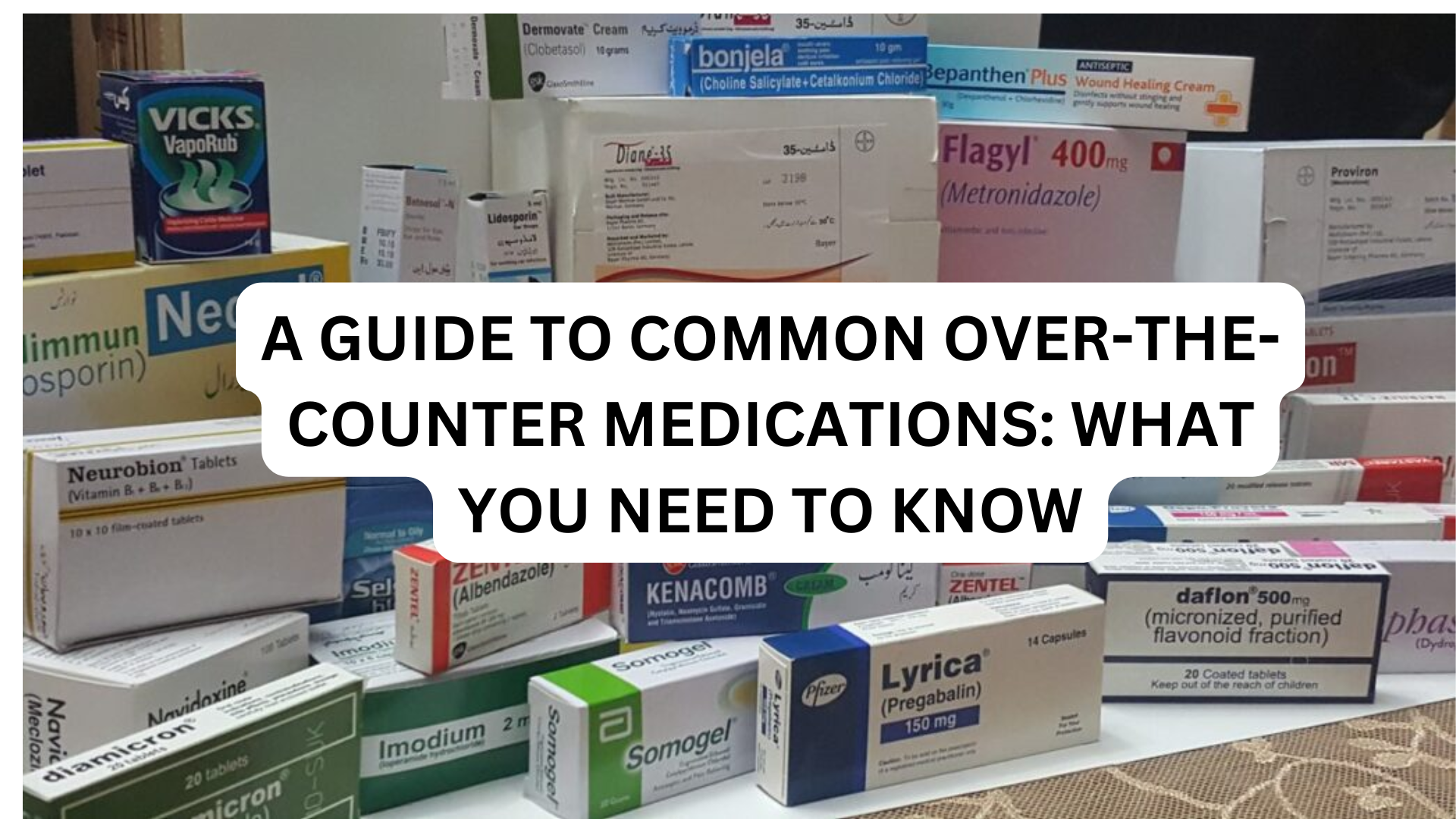
A Guide to Common Over-the-Counter Medications: What You Need to Know
Over-the-counter (OTC) medications are a convenient way to treat minor ailments without needing a prescription. But with so many options available, it can be overwhelming to know which one is right for you. Understanding the basics of these common medications is key to using them safely and effectively.
Lets walk you through the essential OTC medication guide, from pain relievers to allergy solutions, so you can make informed decisions for your health.
The Importance of Understanding OTC Medications
OTC medications are readily available and accessible, making them a popular choice for treating common ailments such as headaches, colds, and minor pains. However, just because these medications don’t require a prescription doesn’t mean they are without risks. Misuse or overuse can lead to unwanted side effects, interactions with other medications, or even serious health issues. Knowing the basic medication information can help you make informed decisions about your health.
Pain Relievers
Acetaminophen
Acetaminophen is a common pain reliever and fever reducer found in many OTC products. It is one of the common over-the-counter pain relievers widely used to treat headaches, muscle aches, arthritis, and colds. Acetaminophen is generally safe when used as directed, but it’s important to avoid exceeding the recommended dosage, as high doses can lead to liver damage.
- Safe for most people when used correctly
- Avoid using multiple products containing acetaminophen simultaneously
- Do not exceed the daily recommended dose (typically 3,000-4,000 mg for adults)
Nonsteroidal Anti-Inflammatory Drugs (NSAIDs)
NSAIDs, such as ibuprofen and naproxen, are commonly used to reduce inflammation, relieve pain, and lower fever. They are effective for conditions like menstrual cramps, toothaches, and minor injuries. However, long-term use or high doses can increase the risk of gastrointestinal issues, kidney problems, and cardiovascular events.
- Effective for reducing pain and inflammation
- Avoid use if you have a history of stomach ulcers, kidney disease, or heart problems
Cold and Allergy Medications
Antihistamines
Antihistamines are common OTC medications for cold and flu used to treat symptoms of allergies, such as sneezing, runny nose, and itching. They are also found in some cold and flu medications to relieve symptoms like a runny nose or watery eyes. There are two main types: first-generation antihistamines (e.g., diphenhydramine, Benadryl) and second-generation antihistamines (e.g., loratadine, Claritin).
First-generation antihistamines can cause drowsiness and are often used as sleep aids, while second-generation antihistamines are less likely to cause drowsiness.
Key Points:
- First-generation antihistamines can cause significant drowsiness
- Second-generation antihistamines are preferred for daytime use
- Be cautious when combining with other medications, especially sedatives
Decongestants
Decongestants like pseudoephedrine (Sudafed) and phenylephrine (found in many cold medications) are over-the-counter allergy medications used to relieve nasal congestion caused by colds, allergies, or sinus infections. However, they can cause side effects such as increased blood pressure, nervousness, and insomnia.
- Effective for relieving nasal congestion
- Avoid use if you have high blood pressure or heart disease
- Limit use to a few days to avoid rebound congestion
Cough Suppressants and Expectorants
Cough suppressants, like dextromethorphan (found in products like Robitussin and Delsym), are used to reduce the urge to cough. Expectorants, like guaifenesin (Mucinex), help thin mucus, making it easier to cough up. These medications can be helpful for managing coughs caused by colds, but they should be used with caution and only when necessary.
- Cough suppressants are for dry, irritating coughs
- Expectorants help with productive coughs by thinning mucus
- Use according to label instructions, and avoid overuse
Digestive Medications
Antacids
Antacids, such as Tums and Rolaids, neutralize stomach acid and provide quick relief from heartburn, acid indigestion, and upset stomach. They are generally safe for occasional use, but long-term reliance on antacids may mask more serious conditions like GERD (gastroesophageal reflux disease).
Proton Pump Inhibitors (PPIs) and H2 Blockers
PPIs (e.g., omeprazole, Prilosec) and H2 blockers (e.g., ranitidine, Zantac) reduce stomach acid production and are used to treat conditions like GERD, ulcers, and chronic heartburn. While these medications are effective, long-term use can lead to side effects such as nutrient deficiencies and increased risk of certain infections.
- Effective for treating frequent heartburn and GERD
- Consult a healthcare provider for long-term treatment options
Final Thoughts
Over-the-counter medications offer a convenient way to manage common health issues, but it’s essential to use them responsibly. By understanding the different types of OTC medications, their uses, and potential risks, you can make informed decisions about your health. If you want to get your hands on effective and reliable OTC medicines, you can get them through Dawa Healthcare. We are a leading onsite and online medicine store in Pakistan that has all the necessary OTC medicines at affordable rates. Visit our stores today or order online.
